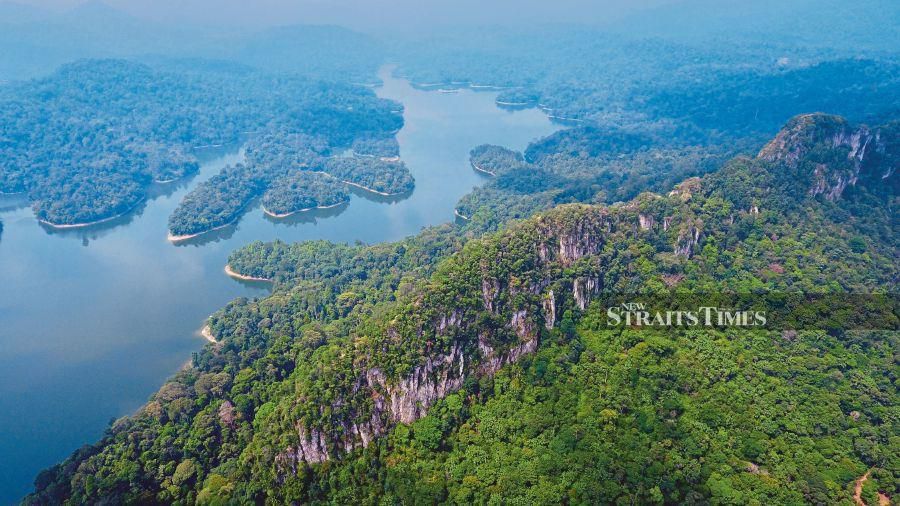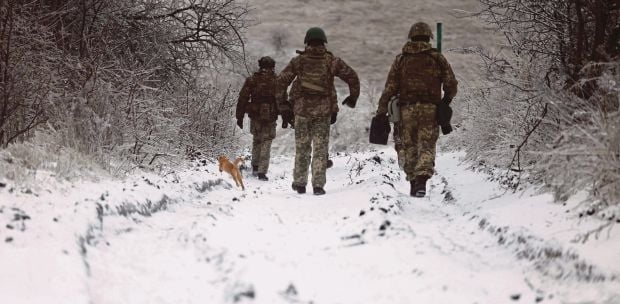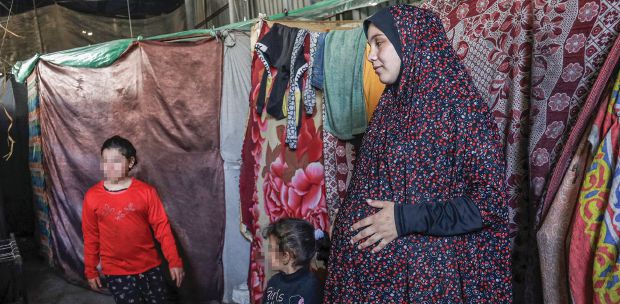RECOMMENDED reading: a new United Nations synthesis of several major past scientific assessments of climate change, biodiversity loss and pollution. The year-long effort was led by two leading experts and long-time friends, Ivar Baste of Norway and Sir Robert Watson of the United Kingdom.
The report's title, "Making Peace with Nature" (at bit.ly/UNEP-UNEA), is striking. Normally one imagines a battle involving two formidable adversaries. But, as many Texans freezing in the dark this week could testify, the might of humankind doesn't hold a candle to that of Mother Earth.
To quote a Conservation International public service commercial, in which actress Julia Roberts gave voice to Mother Nature: "How you choose to live each day, whether you regard me or disregard me, doesn't really matter to me. One way or other, your actions will determine your fate, not mine. I am nature. I will go on. I am prepared to evolve. Are you?"
To emphasise the new report's importance, it was launched personally by UN secretary-general Antonio Guterres, and UN Environment Programme executive director Inger Andersen.
In his foreword, the secretary-general said humanity's "war on nature… is senseless and suicidal. The consequences of our recklessness are already apparent in human suffering, towering economic losses and the accelerating erosion of life on Earth.
"Ending our war does not mean surrendering hard-won development gains. Nor does it cancel the rightful aspiration of poorer nations and people to enjoy better living standards. On the contrary, making peace with nature, securing its health and building on the critical and undervalued benefits that it provides are key to a prosperous and sustainable future for all."
The report says the number and severity of humanity's environmental challenges now constitute "a planetary emergency", listing five top areas of concern:
ECONOMIC costs and millions of premature deaths annually that undermine hard-won development gains, impede progress against poverty, hunger, inequalities, and sustainable economic growth, all eroding peace.
CARBON dioxide emissions: these must be cut by 45 per cent by 2030 compared with 2010 levels, and net-zero emissions reached by 2050 to limit global warming to the Paris Agreement goal of 1.5°C, while at the same time conserving and restoring biodiversity and minimising pollution and waste.
THE need to address together Earth's environmental emergencies and human wellbeing to achieve sustainability. The goals, targets, commitments and implementation mechanisms under the key environmental conventions need to be aligned to become more synergistic and effective.
THE need to transform our economic, financial and productive systems to lead and power the shift to sustainability. This means considering natural capital in decision-making, eliminating environmentally harmful subsidies and investing in the transition to a sustainable future.
THE need for everyone to play a role in ensuring that human knowledge, ingenuity, technology and cooperation are "redeployed from transforming nature to transforming humankind's relationship with nature". It is possible for people to act environmentally responsibly without undue difficulty or self-sacrifice.
Measures to tackle the multifaceted environmental crises fall woefully short of needs. We remain on track for catastrophic 3°C warming above pre-industrial levels, one million of our eight million species face extinction within decades and 90 per cent of people breathe dirty air daily.
Says Watson, who also led UN scientific assessments on climate (IPCC) and biodiversity (IPBES) included in the new synthesis: "We have got a triple emergency and these three issues are all interrelated and have to be dealt with together. They're no longer just environmental issues — they are economic issues, development issues, security issues, social, moral and ethical issues.
"Of all the things we have to do," he adds, reinforcing the blunt message delivered days earlier by Cambridge University economist Professor Partha Dasgupta: "We have to really rethink our economic and financial systems. Fundamentally, gross domestic product doesn't take nature into account. We need to get rid of these perverse subsidies, they are US$5 to 7 trillion a year. If you could move some of these towards low-carbon technology and investing in nature, then the money is there."
The new synthesis report stands apart from past scientific assessments on which it was based in its advocacy — prescribing actions for every sector of society, including individuals. Financial institutions should play a huge role, for example, by ending funding for fossil fuels, the razing of forests, or for large-scale monoculture agriculture.
Pollution was included in the report because, despite some progress, it remains "a huge issue", says Baste. Toxic air, water, soils and workplaces cause at least nine million deaths a year — one in six of all deaths.
With the world's nations scheduled to gather this year for crucial UN summits on climate and biodiversity crises, "I'll be very disappointed if… all they talk about is targets and goals," said Watson. "They've got to talk about actions — that's really what's crucial."
The writer is chairman, Atri Advisory and ambassador and science adviser of the Campaign for Nature






